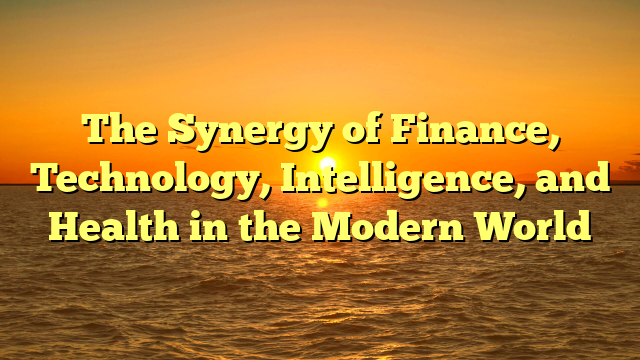Food is more than just fuel for the body; it is a fundamental part of our lives, connecting us to our culture, heritage, and well-being. From the simple pleasure of eating a warm meal to the complex chemical processes occurring in our bodies as we digest and absorb nutrients, food plays a vital role in sustaining life. This article delves into the multifaceted role of food, examining its nutritional value, its cultural significance, and its impact on society.
The Nutritional Value of Food
The primary function of food is to provide energy and the nutrients necessary for the body to function optimally. These nutrients include carbohydrates, proteins, fats, vitamins, and minerals, each of which serves a unique purpose. Carbohydrates are the body’s main source of energy, providing fuel for the brain and muscles. Proteins, made up of amino acids, are essential for building and repairing tissues, while fats serve as a secondary energy source and help the body absorb certain vitamins.
Vitamins and minerals are micronutrients that the body requires in smaller amounts but are just as crucial for maintaining health. For example, Vitamin C helps boost the immune system, while calcium is vital for strong bones. Iron plays a key role in carrying oxygen throughout the body, and magnesium supports muscle function and energy production.
Without a proper balance of these nutrients, the body can experience deficiencies that lead to a variety of health problems.
Eating a balanced diet rich in diverse foods ensures that the body receives the necessary nutrients to function efficiently. This is where the importance of variety comes into play. A diet consisting primarily of one food type can lead to nutrient imbalances. For example, a diet too high in sugars and fats but low in fiber and essential vitamins may result in long-term health issues, such as obesity, heart disease, and diabetes.
Food and Its Cultural Significance
Beyond its biological functions, food plays a significant role in shaping cultures and traditions. 4d has its own culinary identity, with unique dishes, flavors, and cooking methods passed down through generations. These culinary traditions are often influenced by geography, climate, and history, making food a reflection of a culture’s values and way of life.
For example, Italian cuisine is famous for its emphasis on fresh ingredients such as tomatoes, olive oil, garlic, and herbs. Dishes like pasta, pizza, and risotto have become iconic representations of Italian culture. Similarly, Japanese cuisine, with its focus on rice, fish, and vegetables, reflects the country’s deep respect for nature and simplicity. In India, food is often intertwined with religious and spiritual beliefs, with vegetarianism being a common dietary choice influenced by Hinduism, Buddhism, and Jainism.
Food also plays a key role in bringing people together. Family gatherings, religious ceremonies, and celebrations all revolve around shared meals. Whether it’s a Thanksgiving turkey in the United States, a Christmas feast in the UK, or a Lunar New Year banquet in
China, food helps foster connections and build a sense of community. The act of sharing a meal strengthens social bonds, whether it’s among family members, friends, or even strangers.
Moreover, food has the power to communicate cultural values. In many societies, cooking techniques and meal preparation are seen as acts of love and care. The time and effort spent preparing a meal can symbolize respect for others, as seen in the elaborate feasts of many cultures or the simple yet thoughtful meals prepared for those in need.
The Evolution of Food Systems and Globalization
In today’s globalized world, food systems have evolved in ways that are both beneficial and problematic. Modern technology has made food production faster and more efficient, allowing for a wider variety of food products to be available year-round. However, this has also led to a number of challenges, including the rise of processed foods and the increasing distance between food production and consumption.
The rise of industrial agriculture has made food more accessible and affordable for many people. However, it has also raised concerns about sustainability, environmental impact, and the ethics of food production. Factory farming, which produces large quantities of meat, is associated with animal cruelty, pollution, and health risks from overuse of antibiotics and hormones. Additionally, the environmental impact of transporting food over long distances contributes to carbon emissions and climate change.
Globalization has also brought a fusion of culinary traditions. Foods from one part of the world are now easily accessible in different regions, giving people the opportunity to experience new flavors and cooking styles. For instance, sushi, once a Japanese delicacy, can now be found in restaurants worldwide, and tacos have become a staple in many countries outside of Mexico. While this cultural exchange is a positive aspect of globalization, it has also led to the homogenization of diets, with traditional foods being replaced by fast food chains and mass-produced meals.
The Future of Food: Sustainability and Innovation
As the world’s population continues to grow, the challenge of feeding everyone in a sustainable and equitable manner becomes more pressing. Scientists and innovators are working to find new ways to produce food that is both nutritious and environmentally friendly. From plant-based meats to lab-grown proteins, the future of food may lie in technologies that reduce the environmental impact of food production while ensuring that it remains accessible to all.
Sustainable agriculture practices, such as vertical farming and hydroponics, offer ways to produce food in urban areas without the need for large amounts of land. These innovations could help reduce the carbon footprint of food transportation and make fresh produce available even in densely populated regions. Additionally, food waste reduction initiatives are gaining traction, as much of the food produced today goes to waste due to inefficiencies in the food supply chain.
Conclusion
Food is an essential part of life that goes far beyond nutrition. It connects us to our past, our culture, and each other. As we continue to face global challenges related to sustainability, nutrition, and food security, the role of food in shaping our future will be critical. By embracing diversity in diets, supporting sustainable practices, and recognizing the cultural significance of food, we can ensure that future generations will have access to the nourishment they need while celebrating the rich traditions that make food a powerful force for unity and joy.
The Synergy of Finance, Technology, Intelligence, and Health in the Modern World
In today’s rapidly advancing world, the interaction of economic forces, technology, artificial intelligence (AI), and health has become crucial for influencing the future of our communities. These four key areas…





